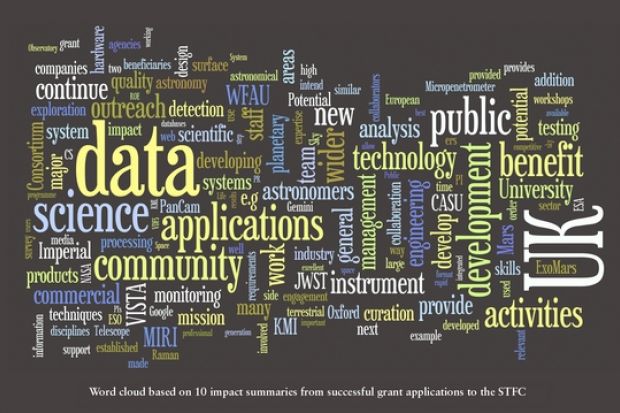Researchers who refuse to predict the future "impact" of their work in grant applications are not necessarily less likely to secure funding, Times Higher Education can reveal.
Figures obtained under the Freedom of Information Act provide the first picture of how academics have responded to the requirement that they describe the potential impact of their work on the economy or society in applications for research council funding.
While most are complying with the demands, there has been a "modest revolt" against impact statements at some of the councils - namely the Engineering and Physical Sciences Research Council and the Arts and Humanities Research Council.
However, researchers who refuse to complete the statements are still winning funding.
The data are derived from grant applications lodged in the six to ten months after impact statements were introduced by the councils in early 2009, and as such they provide only a snapshot of researchers' behaviour. Despite the limitations, the information is likely to provide food for thought for the academy.
The THE analysis shows that scholars who sought funding from the Biotechnology and Biological Sciences Research Council and the Economic and Social Research Council were the most likely to comply with the impact requirement.
Every one of the 947 grant applications lodged with the BBSRC over a ten-month period and the 1,295 applications submitted to the ESRC over seven months featured impact statements. In comparison, not all EPSRC or AHRC researchers were as compliant.
Of 1,712 applications lodged with the EPSRC in the six months after the policy was introduced, 123 (7 per cent) did not provide impact information.
And of the 1,243 applications submitted to the AHRC in the eight months after the policy's introduction, 51 (4 per cent) stated that impact information was either not applicable or not required.
Yet the data reveal that a refusal to comply did not necessarily sink an application. A total of 12 grant applications without impact statements were approved by the AHRC over the period - 16 per cent of the total number of 77 grants awarded - while three of the 145 grants awarded by the EPSRC also lacked the statements.
The content of the impact statements will also be of interest to the academy. Statements obtained from nearly 170 successful grant applications to the AHRC, EPSRC, ESRC and the Science and Technology Facilities Council demonstrate that academics are thinking creatively and on a grand scale about the benefits of their work.
One EPSRC researcher from the University of Bath puts the world on notice about the potential impact of his project, which aims to formulate "more effective cold water laundry washing formulations for hand-washing applications". This will benefit "approximately 3 billion people around the world (particularly women in developing countries) who still rely on washing by hand", he writes.
Others speak of benefits to cancer patients, the economic performance of museums and galleries, carbon-emission levels and anti-terrorism policies.
Jonathan Adams, director of research evaluation at science data provider Thomson Reuters, said most of the impact summaries seemed "sensible and informative".
"Very few have much problem in seeing some wider economic and societal outcomes, although they are often somewhat narrow and proximate," he said.
"For evaluation purposes, it is therefore important that experts review them to judge whether the impacts are realistic or not."
Don Braben, visiting professor in the department of earth sciences at University College London, who has called for a "modest revolt" against the drive to measure and reward impact, admitted researchers did seem to be putting "a lot of effort" into the statements.
But he added that for the few researchers who were funded, there were many more who would put in a similar effort without reward.
"This is a colossal waste of time," he said.

Impact summaries
Impact summaries provided to Times Higher Education by the research councils following Freedom of Information requests. Impact summaries are for grants announced up until 4 November 2009 and cover the AHRC, EPSRC, ESRC, and STFC. No impact summaries were available from the BBSRC, NERC or MRC (which does not require its researchers to include impact statements) at the time of the request. Word clouds, above, are based on the impact summaries provided. All research councils have indicated to their researchers that impact summaries may be published to demonstrate potential impact of research council funded research. Researchers have thus been told to ensure confidential information is not included in the summary.
Register to continue
Why register?
- Registration is free and only takes a moment
- Once registered, you can read 3 articles a month
- Sign up for our newsletter
Subscribe
Or subscribe for unlimited access to:
- Unlimited access to news, views, insights & reviews
- Digital editions
- Digital access to THE’s university and college rankings analysis
Already registered or a current subscriber? Login
